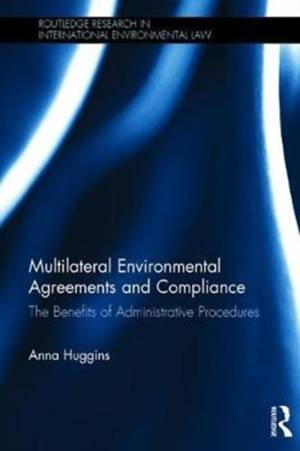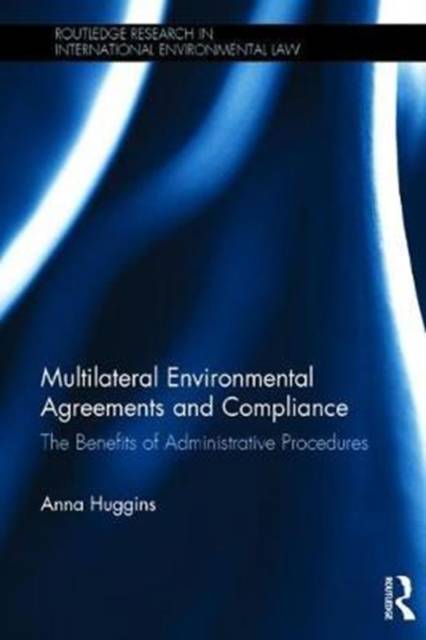
- Retrait gratuit dans votre magasin Club
- 7.000.000 titres dans notre catalogue
- Payer en toute sécurité
- Toujours un magasin près de chez vous
- Retrait gratuit dans votre magasin Club
- 7.000.0000 titres dans notre catalogue
- Payer en toute sécurité
- Toujours un magasin près de chez vous
Multilateral Environmental Agreements and Compliance
The Benefits of Administrative Procedures
Anna HugginsDescription
The adoption of administrative procedures in global governance has the potential to foster proper consideration of marginalized actors' interests, yet risks entrenching the dominance of the well-resourced and powerful. Accordingly, this book proposes a new framework for evaluating the extent to which administrative procedures in the compliance systems of multilateral environmental agreements constrain power and promote regard for the interests of affected states, which are frequently developing and transition countries. This framework is applied to the compliance systems under the Montreal Protocol, the Kyoto Protocol and CITES, which address critical global environmental issues of ozone-layer depletion, climate change and trade in endangered species, respectively. The analysis shows that, under certain conditions, administrative procedures limit the influence of states' asymmetric power on compliance deliberations. Furthermore, systematic adoption of these procedures increases the opportunities for affected states' interests to be voiced and considered in compliance decision-making processes.
Spécifications
Parties prenantes
- Auteur(s) :
- Editeur:
Contenu
- Nombre de pages :
- 198
- Langue:
- Anglais
- Collection :
Caractéristiques
- EAN:
- 9781138288638
- Date de parution :
- 20-11-17
- Format:
- Livre relié
- Format numérique:
- Genaaid
- Dimensions :
- 156 mm x 233 mm
- Poids :
- 457 g

Les avis
Nous publions uniquement les avis qui respectent les conditions requises. Consultez nos conditions pour les avis.






